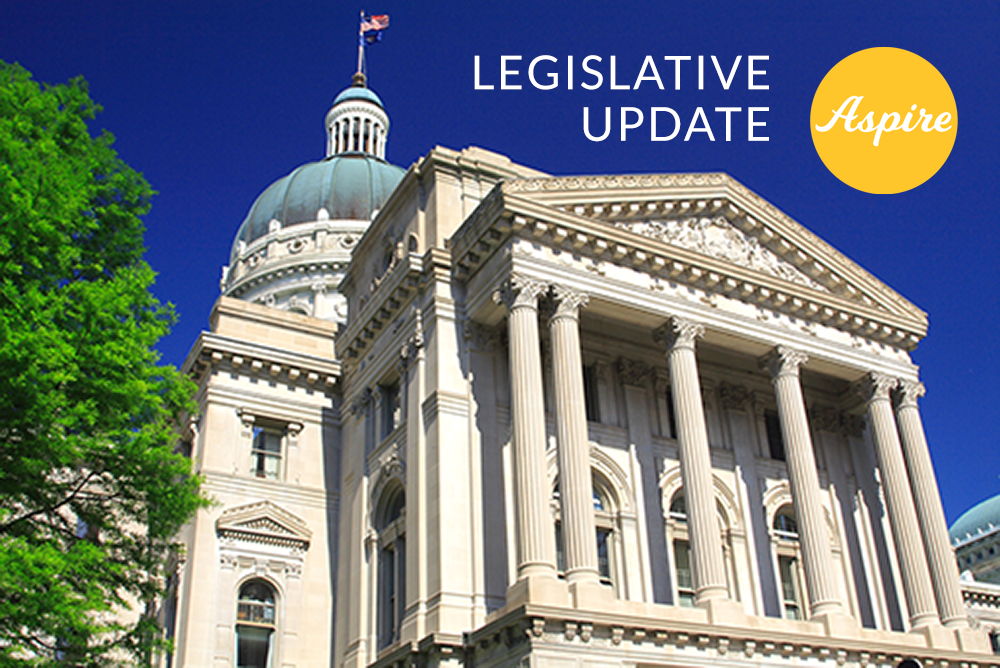Statehouse Session Week Two: Sales Tax on Services?

The Legislature continued its frenzied schedule last week with a wealth of committee hearings. In addition to the governor’s State of the State address last Tuesday, priority bills received debate and discussion on the floor of the House. There was no time to waste as legislative leaders plowed through week two.
Employer COVID Employment Policies
As reported last week, HB 1001 seeks to end Indiana’s state of emergency and regulate businesses’ covid health and safety policies. The bill requires businesses to offer weekly testing as an alternative to vaccinations if an employer chooses to implement a vaccination policy. But the bill also prohibits employees from paying for the weekly testing. Aspire and other business groups successfully lobbied to have the State reimburse employers for the testing costs.
But the bill also used the State’s unemployment system to target businesses and levy fees if they terminated an employee for failing to comply with the company’s health and safety policy. Meaning, the employee would be considered to have left non-voluntarily and eligible for unemployment claims.
In another win for employers, this language was removed from the bill in a voice amendment on the House floor. We wish we could report the amendment passed because legislators disagreed with the intent of the language. Instead, the amendment was passed because it was seen as a punishment to employers that cannot be evenly distributed amongst all employers since unemployment taxes are levied differently across industries and businesses.
Still, we will take the win.
Sales Tax on Services?
HB 1083 would extend Indiana sales tax to all services in 2024 with exceptions for education and healthcare, and wholesale sales. This bill addresses a number of fiscal and taxation matters, many of which would benefit the business community. But Aspire opposes any efforts to expand the sales tax to service transactions. This bill has not yet been assigned a committee hearing but because it contains one of the governor’s proposals, lowering the adjusted individual tax income rate from 3.23% to 3.0%, we will watch it carefully.
We want to hear from you: if your business provides services not currently subject to Indiana sales tax, please tell us how it could impact your operations and gross sales at Info@AspireJohnsonCounty.com.
Rapid Bus to the Airport? Not so fast.
The previous two Statehouse sessions featured bills to restrict bus rapid transit expansion through attempts to withhold IndyGo’s income tax, require IndyGo to raise additional funds, and require IndyGo to pay for utility relocations along the routes (utility companies absorb these costs for public works projects). None of these proposals passed.
This year, SB 369 would prohibit future dedicated bus lanes outside the Mile Square in downtown Indy. As we have in the past, Aspire supports the development, availability, and accessibility of public transportation options. Alternative forms of transportation can also serve as a quality of place tool to aid in economic development, talent attraction and retention. The rapid bus lines are the backbone of a regional public transportation system that is convenient and fast.
SB 369 was assigned to the Senate Rules Committee, often a place where bills are sent to sit on ice. But that does not mean the issue is over for the session. Legislators could try to amend the language into other bills. We will continue to watch other bills and keep our ears open.
